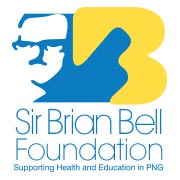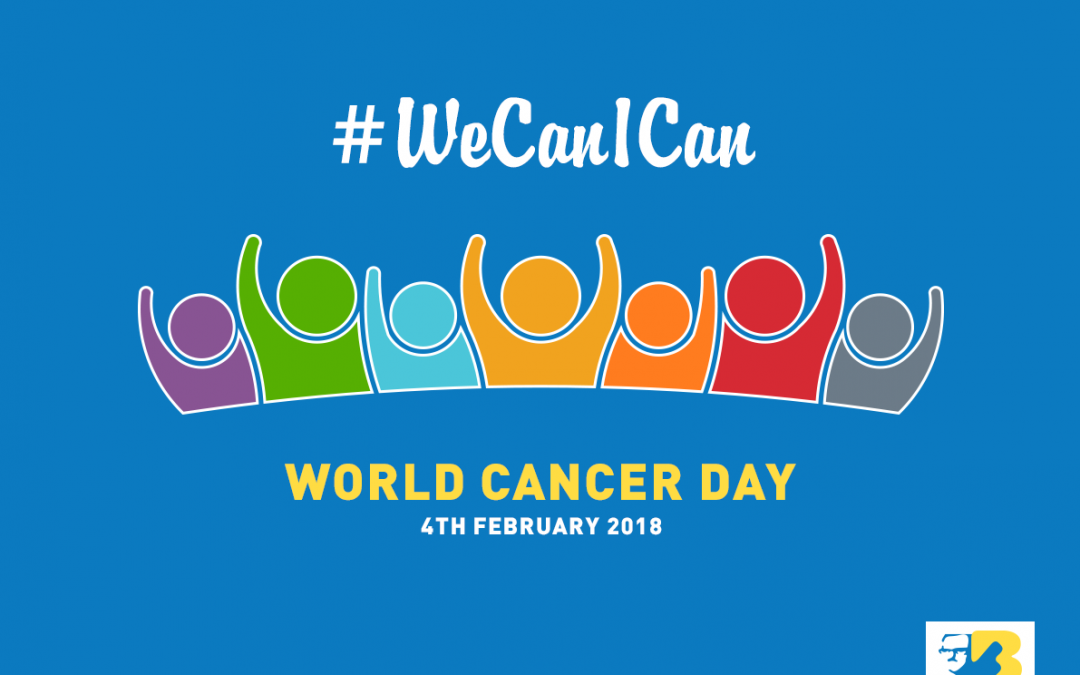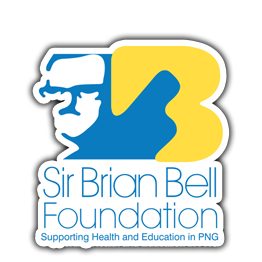World Cancer Day, February 4th, 2018, Taking place under the tagline ‘We can. I can.’ unites the world’s population in the fight against cancer. World Cancer Day aims to save millions of preventable deaths each year by raising awareness and education about cancer and pressing governments and individuals across the world to take action against the disease.
The Sir Brian Bell Foundation strongly supports World Cancer Day as part of our on-going desire and commitment to health in Papua New Guinea. Health Education is the key to creating healthy lifestyles and creating healthy habits. Awareness and preventative measures are better than waiting to treat a disease or illness, so at the Sir Brian Bell Foundation, we work each day educate on the benefits of looking after your body with healthy choices.
Cancer is the second leading cause of death globally, and was responsible for 8.8 million deaths in 2015, out of which, 4 million people die prematurely (aged 30 to 69 years) Globally, nearly 1 in 6 deaths is due to cancer according to World Health Organization (WHO), around 70% of these deaths from cancer occur in low- and middle-income countries. The most common causes of cancer death are cancers of:
– Lung (1.69 million deaths)
– Liver (788 000 deaths)
– Colorectal (774 000 deaths)
– Stomach (754 000 deaths)
– Breast (571 000 deaths)
Around one-third of deaths from cancer are due to the 5-leading behavioural and dietary risks: high body mass index, low fruit and vegetable intake, lack of physical activity, tobacco use, and alcohol use. Tobacco use is the most important risk factor for cancer and is responsible for approximately 22% of cancer deaths while cancer-causing infections, such as hepatitis and human papilloma virus (HPV), are responsible for up to 25% of cancer cases in low- and middle-income countries. Between 30–50% of cancers can currently be prevented by avoiding risk factors and implementing existing evidence-based prevention strategies. The cancer burden can also be reduced through early detection of cancer and management of patients who develop cancer. Many cancers have a high chance of cure if diagnosed early and treated adequately, if you notice any unusual changes in your body it is important to be evaluated by a medical professional.
Modifying or avoiding key risk factors can significantly reduce the burden of cancer. Including:
– tobacco use including cigarettes and smokeless tobacco
– being overweight or obese
– unhealthy diet with low fruit and vegetable intake
– lack of physical activity
– alcohol use
– sexually transmitted HPV-infection
– infection by hepatitis or other carcinogenic infections
– ionizing and ultraviolet radiation
– urban air pollution
– indoor smoke from household use of solid fuels.
– Tobacco use is the single most important risk factor for cancer.
Cancer Treatment
A correct cancer diagnosis is essential for adequate and effective treatment because every cancer type requires a specific treatment regimen that encompasses one or more modalities such as surgery, radiotherapy, and chemotherapy according to WHO. Determining the goals of treatment and palliative care is an important first step, and health services should be integrated and people-cantered. The primary goal is generally to cure cancer or to considerably prolong life or improve quality of life which can be achieved through palliative care and psychosocial support.
Cancer Prevention
Overall, more than a third of common cancers could be prevented by a healthy diet, being physically active and maintaining a healthy body weight. Take action to prevent cancer by making a few healthy lifestyle changes; the benefits will last a lifetime:
Quit Smoking: Tobacco use is the single largest preventable cause of cancer globally and accounts for five million deaths every year, or 22% of all cancer deaths. Reducing the rates of tobacco use will significantly decrease the global burden of a large number of cancers, including of the lung, oral cavity, larynx, pharynx, oesophageal, pancreas, bladder, kidney, cervix and stomach, and acute myeloid leukemia. Quitting smoking is beneficial at any age, increasing life expectancy and improving quality of life. Individuals can also reduce their risk of many common cancers by maintaining a healthy weight and making physical activity part of their everyday lives.
Maintain a Healthy Weight and Eat Well: Being overweight or obese increases the risk of ten cancers – bowel, breast, uterine, ovarian, pancreatic, oesophagus, kidney, liver, advanced prostate and gallbladder cancers according to WHO. Making healthy food choices such as eating more vegetables, fruits, lean protein, and whole grains and limiting foods and beverages high in sugar such as juice and soft drinks and participating in regular physical activity Is a great step in achieving a healthy weight and reducing your risk of cancer.
Reduce Alcohol Consumption: Alcohol is also strongly linked with an increased risk of several cancers including mouth, pharynx, larynx, oesophageal, liver, breast, and pancreas. National Toxicology Program of the US Department of Health and Human Services lists consumption of alcoholic beverages as a known human carcinogen. The research evidence indicates that the more alcohol a person drinks, particularly the more alcohol a person drinks regularly over time—the higher his or her risk of developing alcohol-associated cancer. The Cancer Council recommends that to reduce their risk of cancer; people limit their consumption of alcohol.
Be Sun Safe: Skin cancer is the uncontrolled growth of abnormal skin cells. It occurs when unrepaired DNA damage to skin cells (most often caused by ultraviolet radiation from the sun triggers mutations, or genetic defects, that lead the skin cells to multiply rapidly and form malignant tumors. Nearly all skin cancers can be prevented by protecting yourself from the sun. Always apply sunscreen when spending time outdoors, wear sun protective clothing, wide-brimmed hat and sunglasses when outside and seek shade when possible. If you notice any changes in your skin such as new spots, changes to existing freckles or moles talk to your doctor.
Get Moving: Research shows that being physically active helps reduce the risk of a variety of cancer types, as well as heart disease, diabetes, and many other diseases. Physical activity also indirectly reduces the risk of developing obesity-related cancers because of its role in helping to maintain a healthy weight. Being active is thought to reduce cancer risk largely by improving energy metabolism and reducing circulating concentrations of estrogen, insulin, and insulin-like growth factors. Aim for 150 minutes (2 1⁄2 hours) of moderate intensity physical activity a week, or 75 minutes of vigorous intensity physical activity, will help improve blood pressure, cholesterol, heart health, as well as muscle and bone strength. While increasing to 300 minutes of moderate intensity physical activity, or 150 minutes (2 1⁄2 hours) of vigorous intensity physical activity each week, will provide greater benefits and help to prevent cancer and unhealthy weight gain. Get Moving.
Get to Know Your Body: Regular check-ups are important because doctors are trained to spot the early warning signs of cancer. The Canadian Cancer Society advises that the following changes should be reported to your doctor as soon as possible but doesn’t necessarily mean you have cancer. See your doctor if you experience
– any new growth on the skin
– patches of skin that bleed, itch or become red
– any sore that does not heal anywhere on your body or in your mouth
– obvious change in the shape, size or colour of a mole or wart
– a new or unusual lump or swelling in the breast, testicles or any other part of the body
– any unusual bleeding or discharge from the nipple or vagina
– blood in your urine or stool
– blood in phlegm
– weight loss, fever, tiredness, aches or pains that you can’t explain
– any change in bladder habits
– any change in bowel habits, indigestion or problems swallowing
– a nagging cough, hoarseness or a croaky voice
For more information on World Cancer Day head to http://www.worldcancerday.org


